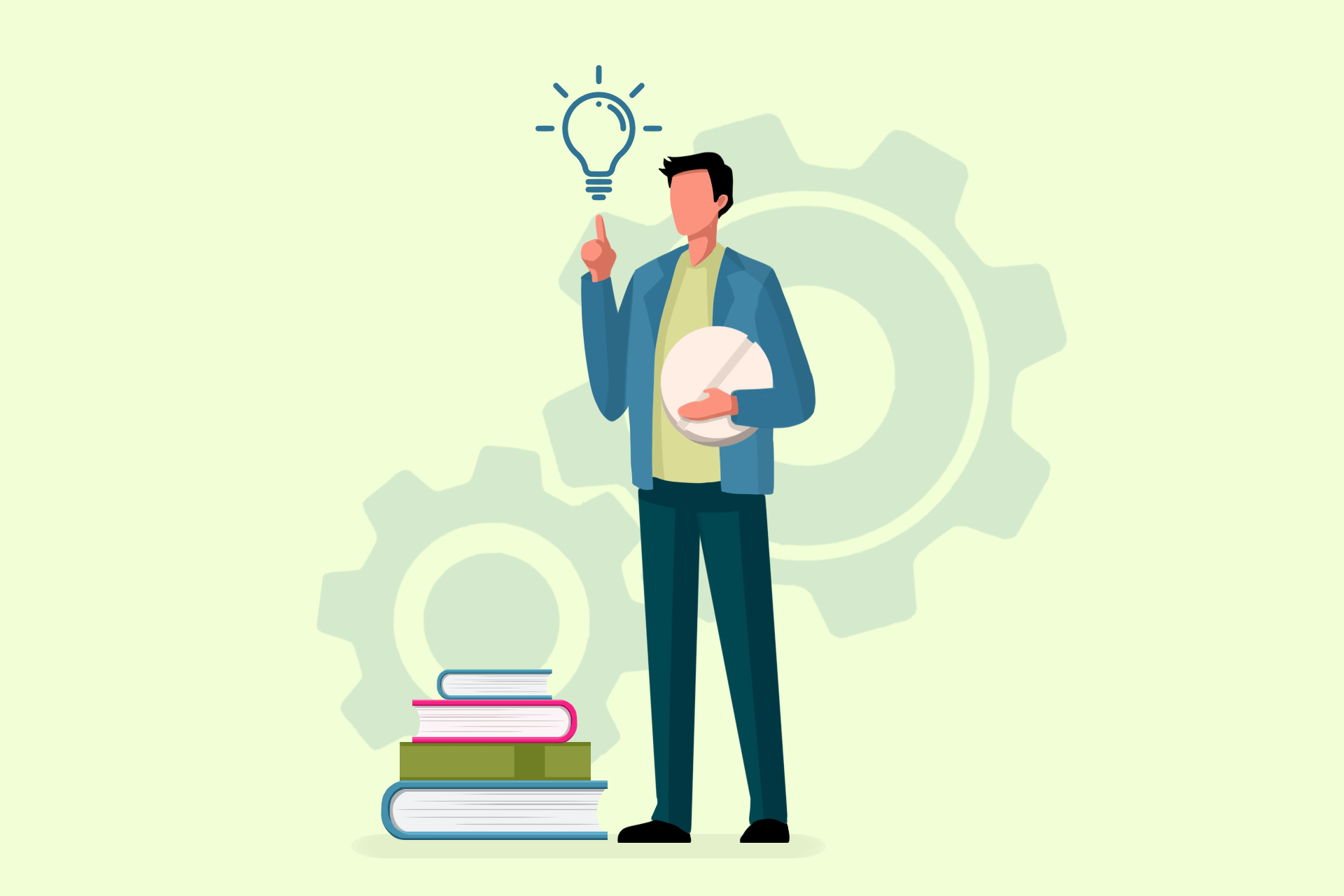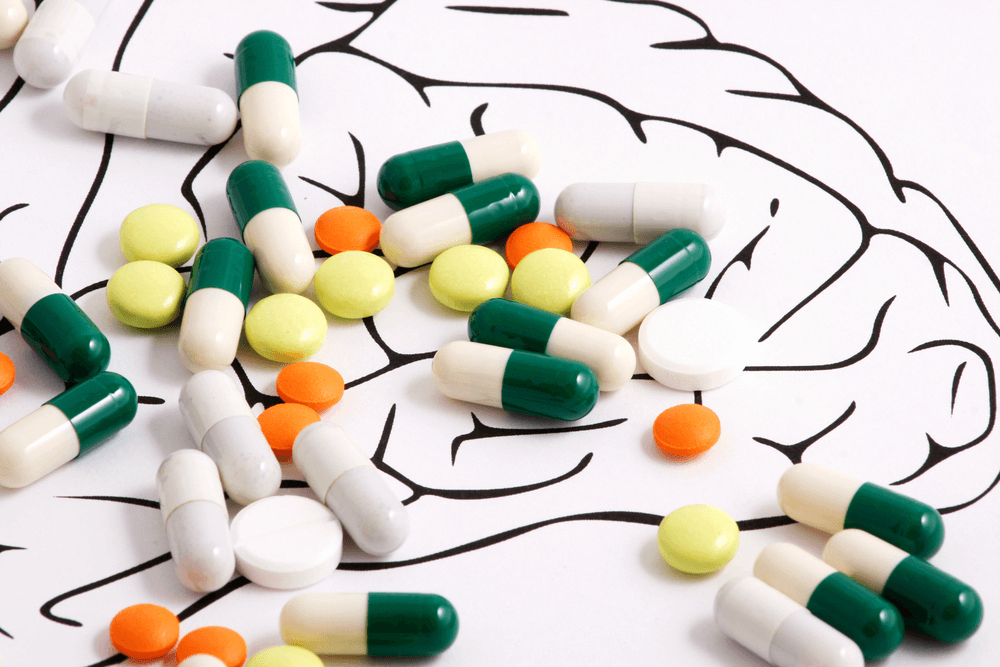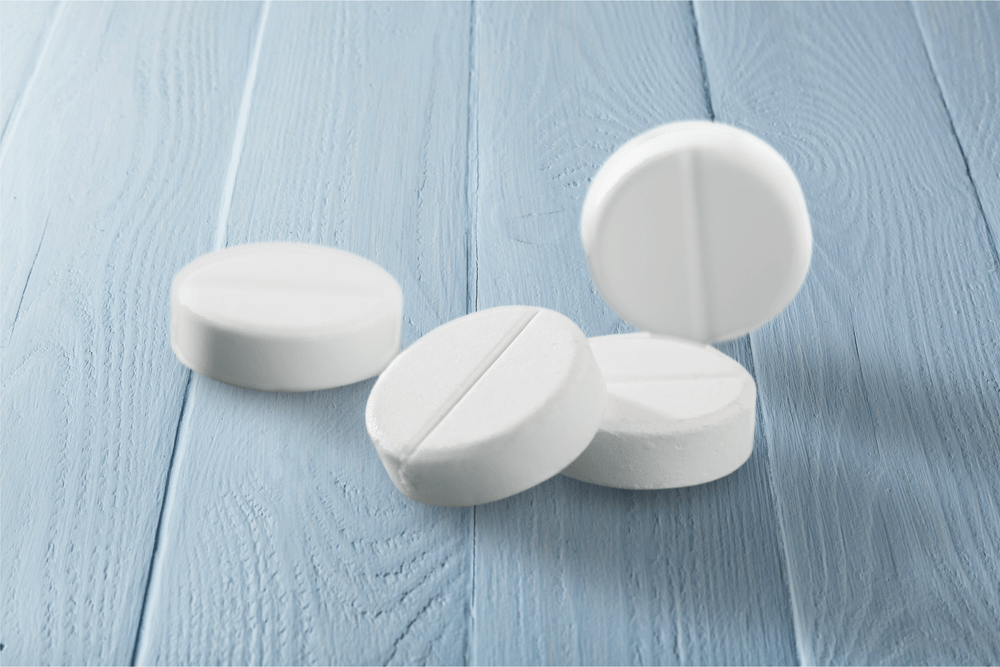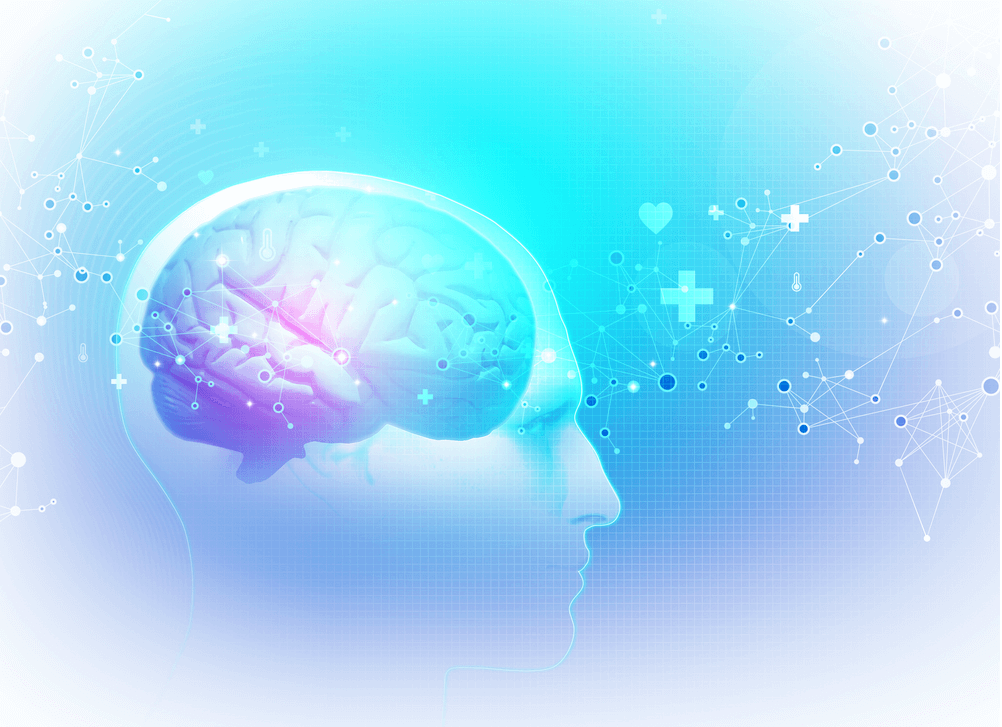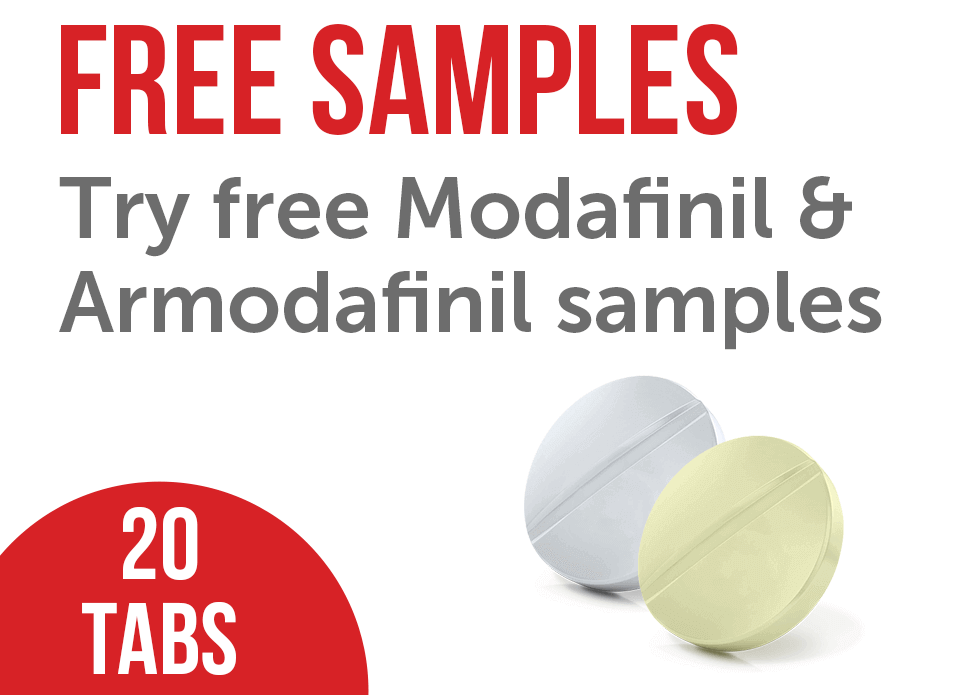Is modafinil the future of neuroenhancement? Dubbed as a “smart drug” or a “smart pill,” it has huge potential to boost cognitive function, causing healthy individuals to be more productive and innovative.
The researchers of modafinil seem self-assured to label it as the world’s first-ever confirmed safe & powerful cognitive-augmenting pill that’s only safe if applied by healthy people. Those affected by sleep disorders are also given this medication as a prescription.
If you’re feeling a little cognitive deficient, modafinil (a nootropic or a eugeroic) is typically used to enhance the effects of brain functioning like planning, learning, decision making, attention, memory, creativity, motivation, among others.
Modafinil seems to be a legit “smart medicine.” What should you learn about its research and documented reports about its effects? In this guide, we cover modafinil with excellent pointers about its cognitive-augmenting effects with considerations if it can make you smarter.
First things first.
What Are Nootropics?
Nootropics are medicines, supplements, & other substances that can improve cognitive abilities, particularly creativity, executive functions, focus, attention, memory, and motivation, in healthy individuals [1][2].
The use of cognitive-enhancing meds by those having no diseases has spanned numerous controversial issues, including the fairness of their use, concerns over negative effects that pose serious health problems, and the diversion of prescription meds for nonmedical uses (or off-label).
For healthy individuals, the use of drugs to ameliorate cognitive functioning and the concept of neuroenhancement are certainly not a new experience. One of the first nootropic medicines, Piracetam, was developed over 50 years ago by chemist C. E. Giurgea [3].
Although Giurgea did not fathom Piracetam’s exact mechanism, he believed the medicine boosted brain power and so began his further exploration into “smart pills.”
Listed below are some of the more frequently used nootropics including wake fostering agents such as modafinil and several others classified as racetams because of their shared chemical structure.
- Piracetam – developed in 1964. It’s known to foster learning & memory.
- Phenibut – developed in the Soviet Union in the 1960s.
- Aniracetam – a synthetic derivative of Piracetam. This drug is believed to be the second most used nootropic in the Racetam family. It’s very popular for its stimulatory effects since it enters the bloodstream faster than Piracetam. This drug was developed to aid in memory & learning, but many anecdotal tidings also claim that it’s a drug that increases creativity. There are other anecdotal reports that Aniracetam treatment is effective for children with Down syndrome.
- Oxiracetam – this nootropic is popular among IT professionals or computer programmers. It’s effective in recovery from neurological trauma & improvement to long-term memory. It is also believed to be effective in boosting focus, attention span, learning capacity, sensory perception, and logical thinking. It also acts as a stimulant enhancing mental energy, motivation, and alertness.
- Modafinil – this medication is marketed by Cephalon, Inc., under the brand-name Provigil® among others. It is a stimulant-like drug. According to Scientific American, modafinil has passed diligent rigorous tests of cognitive improvement [4].
- Ginsenoside Rg1 – some of its cognitive benefits include increasing learning ability & memory acquisition, as well as accelerating neural development. Its mechanism targets mainly the N-methyl-D-aspartate (NMDA) receptors & nitric oxide (NO) synthase, which both contribute to a key role in personal & emotional intelligence [5].
Nootropics are either administered alone or as a stack with other similar medicines. Not included in the list above are prescription psychostimulants such as Ritalin and Adderall. Non-prescribed or illicit use of these meds for cognitive enhancement in healthy individuals comes with a high cost, including addiction & other unprecedented serious negative effects [6].
Although these meds are prescribed for patients diagnosed with attention deficit hyperactivity disorder (ADHD) to aid with attention, focus, & other cognitive functions, they have been manifested to impair these same functions when used for off-label purposes. More alarming, when administered in high doses, they may induce psychosis.
Most nootropics are not acclaimed or accepted as satisfactory by the Food and Drug Administration (FDA) for use as a medical remedy or dietary supplement in the USA. This and the dearth of clinical research & lack of regulation imply that consulting with a medical specialist before taking a cognitive enhancement would be, well, the smart thing to do.
Although there are various nootropics, modafinil has been well researched and proves itself to be safe and very effective. It is known to have no or few adverse effects as opposed to those found in traditional psychostimulants such as methylphenidate (Ritalin), amphetamine (Adderall), or cocaine. Verily, it can be applied as an anti-fatigue agent or antipsychotic [7].
Main Uses of Amphetamine & Caffeine
Amphetamine is a powerful stimulator of the central nervous system (CNS). It is used to treat various health problems, but it is also highly addictive, with a known history of abuse.
Stimulants such as methylphenidate (Concerta & Ritalin) and amphetamine (Adderall) are used as remedies for health conditions such as ADHD and narcolepsy [8]. If taken with adherence to prescription, these types of meds can be safe and effective.
Also, amphetamine is used as a remedy for chronic fatigue syndrome, hypnolepsy, traumatic brain injury, obesity, and rarely depression. It can be prescribed off-label as a mood enhancer or waking medicine for daily life. Amphetamine is popularly used for its relative effectiveness and lasting duration. However, when abused, it begins to be a highly addictive narcotic with a rapid tolerance rate [9].
Adverse effects of amphetamine are acne, restlessness, and blurred vision. Its rare negative reactions may include heart problems, seizures, & psychosis [10].
Caffeine is a CNS stimulant of the methylxanthine class. It is the world’s most widely used psychoactive medicine. Unlike several other similar substances, it is legal & unregulated in nearly all parts of the world.
The FDA voiced that about 80% of U.S. adults consume some form of caffeine every day. However, it does so much more than just keeping humans awake. It affects the individual body in numerous ways. Can modafinil be mixed with caffeine? Here is what you need to know about mixing modafinil & caffeine.
On its own, caffeine has no nutritional value. However, some meds may contain this ingredient. It almost always causes some unwanted symptoms. At a minimum, a user may feel more energetic, but over time, too much caffeine may give rise to withdrawal symptoms [11].
Caffeine is safe for most healthy adults to consume up to 400 ml/day. If you take the same amount of this substance daily, the body develops a tolerance to it. Also, certain other factors like body mass, age, and overall health can determine individual tolerance to caffeine.
For a long time, caffeine, a methylxanthine derivative, has been used as a psychoactive med. For healthy adults taking this medication, its half-life is about 5 hours. Caffeine can string out up to 11 hours for women prescribed birth control meds or pregnant women [12].
Caffeine behaves as an antagonist of adenosine receptors [13][14]. In daily life, this substance is included in drinks or food to help foster alertness & to recover from fatigue [15]. Medically, caffeine is sold as a pill. The effectiveness & duration of its effects is not as great as those of amphetamine.
Studies depicted that those who drink coffee regularly have a lower risk of experiencing dementia and Alzheimer’s disease and lower suicide risk by 45%. These benefits are limited to individuals who consume high-octane coffee but not decaf. Some consider coffee to be a safe health drink, but like most foods, overindulging can cause certain negative effects like headaches. This is mainly linked to caffeine withdrawal. The brain’s blood vessels become used to caffeine’s effects, so if you abruptly stop consuming this substance (every day), it can provoke a headache. Other symptoms of caffeine withdrawal may include irritability, anxiety, and drowsiness.
What Is Modafinil Prescribed For?
Modafinil is an exclusive psychostimulant medicine with a waking effect. It is a special med that is only approved as a prescription to shift workers & patients diagnosed with narcolepsy or obstructive sleep apnea (OSA). However, its usage among healthy people to augment their alertness or to mitigate fatigue is increasing.
Doctors consider prescribing this medication off-label for other sleep disorder related conditions and for certain health problems including ADD/ADHD, depression, multiple sclerosis-induced fatigues, myotonic dystrophy, Alzheimer’s disease, chronic fatigue syndrome, cognitive impairment in schizophrenia, age-related memory decline, idiopathic hypersomnia, everyday cat-napping, post-anesthesia grogginess, jet lag, and other related conditions.
Modafinil not only has a waking effect but is also popularly known for its relaxing, mood-brightening, motivation, & memory-enhancing effects. Originally developed as a potent remedy for narcolepsy & other sleep disorders, medical specialists are now prescribing it off-label to cellists, judges, scientists, and airline pilots to enhance attention, memory, and learning.
This medication is of high interest to various world militaries. The US military uses modafinil for fostering alertness & reducing battle fatigue. Its availability as a lifestyle medicine is increasing. More students, various employees, business executives, or hard-working professionals use a nootropic for a late night’s work to boost productivity or enhance cognitive function.
Due to its safety profile, a “smart pill” can be used by anyone, be it a healthy individual who desires to work late (for extended hours), enhance their cognitive reactions, and stay awake during lengthy missions or tasks that require several hours, or brighten their moods.
Mechanisms of Modafinil
The usual half-life of modafinil is between 12 to 15 hours. It consists of S-enantiomer & R-enantiomer as a racemic compound. The waking effect of R-enantiomer is fathomed to have a longer duration than S-enantiomer. The active R-enantiomer of racemic modafinil is medically known as armodafinil.
Modafinil belongs to a novel class of psychostimulants called eugeroics (wakefulness-promoting meds). Eugeroic triggers good arousal; that is, they show no sign of common negative consequences of traditional psychostimulants, such as psychiatric disturbance, interference in recovery sleep, and addiction [16][17][18].
Modafinil’s exact mechanism of action is unclear. However, its activity is thought to differ from those of stimulant medications (amphetamine & methylphenidate). It has been shown to inhibit the reuptake of dopamine by binding to the dopamine transporter (DAT). Modafinil blocks DAT and provokes a boost of dopamine in the human brain together with the nucleus accumbens. This effect induces the same response as other waking meds [19][20][21].
Dopamine is an essential chemical messenger that’s involved in reward-seeking, motivation, attention, memory, and even regulating body movements. It plays many important roles in the human body, and low levels in the brain may negatively affect human mood, motivation, and memory.
The human brain needs dopamine in the right place at the right time & in the justifiable amounts. When it all happens together, we tend to be the awesome smart people. With the ideal concentration, dopamine triggers motivation, and it is the driving neurotransmitter essential in competitive behaviors. When the dopamine mechanism isn’t working properly, some problems ensue. This body chemical substance is linked to everything interesting about evolution, metabolism, and the brain.
Dopamine problems are implicated in Alzheimer’s, ADHD, Parkinson’s, depression, gambling, binge eating, bipolar disorders, addiction, and schizophrenia. Having an intolerable concentration of dopamine in the wrong place can make an individual psychotic. It can cause aggression, euphoria, and intense sexual feelings. Can modafinil ruin the sex drive? Here is a piece of full information about sex on modafinil.
Illicit meds that dump loads of dopamine or strongly hinder its reuptake (a mechanism similar to dumping loads of dopamine) include methamphetamines and cocaine [22].
Modafinil is structurally not related to amphetamine & has a differing profile of pharmacological and behavioral effects. It activates glutamatergic circuits while inhibiting gamma-aminobutyric acid (GABA).
As a eugeroic, it exhibits robust effects on serotonin, catecholamines, glutamate, γ-aminobutyric acid, orexin (a family of wakefulness proselytizing & sleep-inhibiting peptides), and histamine systems in the brain. At well-tolerated doses, modafinil improves function in several cognitive domains, including working memory & episodic memory, and other processes dependent on cognitive control and prefrontal cortex.
Orexin neurons are activated by modafinil inducing wakefulness by its activity in the anterior hypothalamus [23]. It instigates alertness through the alpha-adrenergic receptor.
Can Modafinil Pill Make You Smarter?
Although modafinil was designed to help various patients deal with several sleep disorders, it is also widely taken by healthy “smart pill” enthusiasts (from all walks of life) who want to augment their cognitive capabilities.
Seen as the first nootropic that’s reasonably safe to use at least for short periods, the med is widely available online – from various e-pharmacies – to anyone looking for an increased focus, attention, productivity, and creativity boost.
As discussed, this “smart pill” isn’t addictive. However, this doesn’t mean that its long-term use might not have any adverse effects.
Modafinil can indeed augment cognitive abilities. It is a favorite drug among IT professionals, business executives, and various students who use it when learning, preparing for exams, or during complex tasks with visible results. With all its beneficial effects, it seems to be a legit “intelligent pill” that does amazing things when it comes to cognitive rewards. This is a revelation according to a systematic analysis of reports documenting the effects of the medicine as depicted by a team at Harvard Medical School and the University of Oxford [24].
The researchers discussed modafinil’s super cognitive benefits in areas like flexibility, planning & decision making, creativity, and learning & memory. This medicine has great improvements from task to task, but the longer and more complex the task is, the superior the improvements on studied individuals. The most noteworthy improvement was indicated in planning tasks and decision-making. The least significant results dealt with working memory, or flexibility of thought.
Modafinil’s cognitive benefits, given the wider usage, have remolded over the last few decades. More recent studies about this medication have indicated that it more reliably enhances cognitive power, particularly “higher” brain functions that rely on collection from multiple simple cognitive processes.
The findings raise some key questions. What might happen to an individual taking the med every day for several years? Again, there’s an ethical consideration. Is it okay to take the nootropic in the absence of a cognitive disability?
Some people might take this as cheating. On a competitive level, taking a “smart pill” could certainly be seen as cheating.
Studies prove that modafinil is the first real instance of a powerful cognitive enhancer that can genuinely help with exam preparation in particular.
In the UK and several parts of the world, modafinil is already quite popular and sought after among university & college students. A survey by Oxford University student newspaper, The Tab, found 1 in 4 students took modafinil. A fifth of the students at Imperial, Nottingham, Sheffield, and Manchester also acknowledged using the drug [25].
Of those who admitted taking modafinil, 20% voiced they swallowed the pill daily.
Just like why some athletes and bodybuilders use supplements to augment their physical performance, some people might consider taking certain cognitive enhancers for the benefit of their brain. The brain, to be more specific, the essence of creativity & intelligence isn’t exactly like a biceps. You can’t pop pills, take a little rest, and presume to turn into Einstein, Stephen Hawking, or Bradley Cooper from Limitless.
Forget about this movie. View cognitive enhancers with a wary eye. Whether you intend to overclock your brain function or not is up to you. However, if you feel you’re not super smart enough, try the traditional approach first. Flex your brain (exercise to stay healthy [26]). Study, research, read, communicate, converse with people, and write. Exercising and eating well enhance aspects of cognition.
When it comes to meeting that looming productivity deadline or coping with exam stress, the prospect of a “smart pill” that would aid you with focusing, staying vigilant, learning, and contemplating faster is very seductive. At least this is what current trends on college or university campuses propound. Just as you might drink coffee to help you stay alert, an increasing number of college students & academics worldwide are turning to prescription meds to enhance their academic performance [27][28].
The so-called “smart pills” are being used off-label for their apparent cognitive augmenting benefits. If they are synthetic cognitive enhancers, the appeal of meds like Ritalin & modafinil lies in their purported ability to enhance brainpower beyond the norm.
Indeed, at school, during planned travel missions, or in the workplace dealing with complex tasks, a pill that enhances the ability to acquire & retain information would be in demand since it’s very useful when it comes to boosting productivity, memory, focus, as well as learning lecture material. But despite their overwhelming increasing popularity and safety, do prescription stimulants augment cognition in healthy individuals?
There is sufficient evidence to suggest that methylphenidate, modafinil, and amphetamine boost cognitive processes such as focus, learning, attention, creativity, and working memory. One study discovered that modafinil enhanced cognitive task performance in sleep-deprived doctors. On the same level as non-sleep-deprived healthy individuals, modafinil effectively boosts planning & accuracy on certain cognitive tasks – an experience similar to amphetamine and methylphenidate [29].
With these actual revelations, a “smart pill” can make you smarter. Unluckily, it’s not that simple to be smarter [30].
Despite some constructive findings, numerous studies found no effects of enhancers in healthy people. As an example, although some research depicted moderate enhancing effects in well-rested individuals, modafinil mostly showed increased effects in instances of sleep deprivation [31].
The idea that taking modafinil will promptly make you very smart is wrong. It merely sharpens up your vigilance, focus, attention, & motivation like a super-strong coffee. There already needs to be a great desire to work first to combine with the medicine to make it effective.
To note, “study drugs” became popular news in the year 2015, as not much was understood about modafinil & worries that it could be vicious to use. Several years later, the research found that modafinil wasn’t as dangerous as several people thought nor was it as effective as first introspected [32].
The cognitive augmenting effects of “smart pills” or stimulant meds primarily depend on baseline performance. So while some stimulants enhance performance in a certain group of people with low or average baseline cognitive abilities, the same pills often weaken performance in those who are already at optimum. Indeed, in a study, modafinil only enhanced certain cognitive performance in individuals with a lower (although still above-average) IQ [33].
Modafinil “Smart Drug” Does Enhance Cognition
Why is modafinil widely used off-label to promote cognitive enhancement? Humans indeed need qualities such as alertness, vigilance, mental acuity, and concentration to assist with, for example, exam preparation or to stay alert and awake during long complex missions.
A new systematic analysis shows that modafinil does indeed bestow significant cognitive benefits on healthy individuals, at least on a specific subset of tasks [24].
Dr. Anna-Katharine Brem, a researcher at both the Harvard Medical School and Oxford University, revealed that, in the face of modafinil vanishingly few negative effects, this medication could be considered a cognitive enhancer [34]. Thus, modafinil well deserves the title of the first excellently validated pharmaceutical eugeroic.
Medical specialists are now prescribing it as a “genius pill” to various personnel to aid in improving vigilance, attention, learning, and memory. According to different studies, modafinil is the ideal medicine that boosts higher-order cognitive function without causing serious side effects.
The Rise of Work-Doping
Modafinil fosters cognition. Would you take it to get a raise? Surely, I would. How about you?
There are cognitive benefits of modafinil. But, is it for you? If you could take a safe pill to better your performance during exams or learning, win a competition as an athlete or sports professional, or improve workflow/productivity at your job, with few or lack of negative consequences, would you do it?
Essentially, modafinil can help normal people ponder better. Unlike other cognitive-enhancing meds, modafinil is more effective in improving decision-making & planning. Some other studies also showed gains in combining information, flexible thinking, or coping with novelty.
The longer and the more difficult the task is, the more consistently modafinil enhances cognitive function. It is one of an arsenal of meds, which includes Adderall, Concerta, and Ritalin, that are increasingly used off-label by business executives, college students, factory workers, & adults seeking greater productivity.
As modafinil popularity becomes more widespread, some sports organizations have already banned its use without a diagnosed health problem. This is for the same reasons steroids & other performance enhancers are banned during competitions.
Why ban a “smart pill”? Will the company’s top-level executives welcome the rise of extra-sharp employees who never need sleep – just because they use cognitive enhancers?
Although it’s a safe drug, modafinil is considered a doping pill used to excel in various competitions – in school, athletics, sports, etc.
Modafinil Use in Professional Sports
Modafinil is prohibited by the World Anti-Doping Agency (WADA) for use during competition. Its effect on the athlete’s performance is believed to foster endurance & explosiveness. Moreover, it’s understood that due to its noticeable but rarely studied appetite-suppressing effect, it can be used in conjunction with bodybuilding to decrease adipose tissue or fat.
What if some other performance enhancers are not listed as banned substances? The rules are specific, and in such a case, the athlete should not and cannot be disqualified during the competition for having taken such drugs.
However, if the athlete consumes modafinil as a remedy for a medical condition, then disqualification for having used such would not take effect. Although fairness is sought in doping instances, strict liability competition rules are usually applicable.
All athletes prescribed modafinil are required to properly request exemptions, list it as a tablet being taken, and have the appropriate health condition diagnosis with supportive diagnostic procedures.
In the domain of an athlete with a health condition such as obstructive sleep apnea or narcolepsy, they should not be prevented from taking the appropriate medication like modafinil, even if it is on the banned list. However, during competitions, an elite athlete with narcolepsy or related health problems is rare [36].
“Smart pills” may help intelligent guys to become deeper thinkers as well. This is due to a study involving chess players. A randomized-controlled trial depicted that two commonly prescribed meds – modafinil and Ritalin – could be used to foster performance in chess games [37].
A group of researchers in Sweden and Germany recruited a total of 39 competitive male chess players, all with an average IQ of 127 and an average chess Elo rating of about 1,700. They divided the group into three and gave them modafinil, caffeine, & Ritalin.
The effects of Ritalin & modafinil were significant. The researchers realized that the latter powered performance by 15%, Ritalin by 13%, and caffeine by 9%.
Cognitive enhancers helped those with lower scores to attain a fair-playing field as compared to those with higher scores. Among the other several meds tested, only modafinil had been shown to increase the performance of high scorers.
The researchers accepted that nootropics helped players perform more mental calculations and make better moves. According to them, these drugs may be able to transform fast & shallow thinkers into deeper but somewhat slower thinkers.
Modafinil is also used to foster cognitive performance capacity (i.e., brain doping). Some studies on healthy individuals without diagnosed sleep deprivation who took modafinil found that it had a positive effect, for instance, on attention, focus, thinking, calculations, decisions, learning, planning, and memory [38][39].
In Spotlight: Should You Take Modafinil?
There are plenty of nootropics used to unlock individual true brain function, but modafinil is in a class of its own for a few reasons:
- it’s a eugeroic, not a stimulant;
- it’s not addictive and even can help kick addictions;
- it is very safe, with very few to no negative effects;
- it produces great results: increases resistance to fatigue & improves mood, reaction time, fatigue levels, motivation, and vigilance.
With various ways to enhance brain function, modafinil is best for cognitive abilities such as focus, clarity, motivation, and memory. Amphetamine (Adderall) can be good for focus but comes with high risks & several drawbacks.
But, is modafinil safe?
It’s evident that this medication is not addictive, but it has a risk of abuse.
It’s not everyone’s game to use a prescription med for cognition or performance enhancement. Most importantly, it depends on your health.
Considered safe for most healthy people, modafinil may be associated with some negative effects such as anxiety, nausea, headache, dizziness, and insomnia, among others. However, it may be linked with rare psychiatric conditions or life-threatening skin problems. You should consult with your medical specialist when making decisions about using modafinil & regarding your health.
If you want to play with notable nootropics and are ready to order them online, consider that several e-drugstores offer such products for sale. However, there is a case of counterfeit medications. The majority of online vendors sell modafinil & other nootropic meds without a prescription. Stay safe, we have various reviews of legit e-pharmacies, but we particularly recommend ModafinilXL. We have a special section about online nootropic suppliers as reviewed by our team at the Vendor Reviews category.
Summary
Nootropics offer a range of health and brainpower benefits. Some of their effects include improved memory, increased alertness, and decreased mental fatigue & fog. Some nootropics are also very effective adaptogens, helping your body manage stress.
Uniquely, modafinil increases resistance to fatigue & improves the user’s mood. If taken by healthy individuals, it boosts motivation, reaction time, and vigilance, among other similar effects. This medication is also effective at reducing “impulse response,” i.e., bad decisions.
Overall, according to various studies, modafinil is a legit and safe “smart pill” that’s only used with a prescription for better results. Other considerations need to be studied to comprehend modafinil safety and what it does to your body. It’s not approved for enhancing cognitive function, but it works. Time will tell if this pill becomes part of the approved nootropic meds.
References
- Smart Drugs and Synthetic Androgens for Cognitive and Physical Enhancement: Revolving Doors of Cosmetic Neurology. Paola Frati, Chrystalla Kyriakou, Alessandro Del Rio, Enrico Marinelli, Gianluca Montanari Vergallo, Simona Zaami, and Francesco P. Busardò. Published: Jan 2015. Ncbi.nlm.nih.gov.
- Nootropic | Wikipedia. Retrieved: July 23, 2020. Wikipedia.org.
- Corneliu E. Giurgea | Wikipedia. Retrieved: July 23, 2020. Wikipedia.org.
- A Safe Drug to Boost Brainpower. By Melinda Wenner Moyer. Published: March 1, 2016. Scientificamerican.com.
- Ginsenoside RG1 | Chemical Co-Occurrences in Literature. Retrieved: July 23, 2020. Pubchem.ncbi.nlm.nih.gov.
- Performance enhancement at the cost of potential brain plasticity: neural ramifications of nootropic drugs in the healthy developing brain. Kimberly R. Urban and Wen-Jun Gao. Published: May 13, 2014. Frontiersin.org.
- Practical Use and Risk of Modafinil, a Novel Waking Drug. Dongsoo Kim. Published: Feb 22, 2012. Ncbi.nlm.nih.gov.
- HIGHLIGHTS OF PRESCRIBING INFORMATION. ADDERALL XR® (mixed salts of a single-entity amphetamine product) dextroamphetamine sulfate, dextroamphetamine saccharate, amphetamine aspartate monohydrate, amphetamine sulfate capsules, CII (pdf). Retrieved: July 23, 2020. Accessdata.fda.gov.
- Chronic amphetamine: tolerance and reverse tolerance reflect different behavioral actions of the drug. N.J. Leith, R. Kuczenski. Published: September 1981. Retrieved: July 23, 2020. Pubmed.ncbi.nlm.nih.gov
- Uses and risks of amphetamine. Retrieved: July 23, 2020. Medicalnewstoday.com.
- The Effects of Caffeine on Your Body. By Tim Newman. Published: December 22, 2017. Last medically reviewed: August 7, 2017. Healthline.com.
- [Determination of caffeine and metamizole elimination in pregnancy and after delivery as an in vivo method for characterization of various cytochrome p-450 dependent biotransformation reactions]. W. Ortweiler, H.U. Simon, F.K. Splinter, G. Peiker, C. Siegert, A. Traeger. Published: 1985. Retrieved: July 23, 2020. Pubmed.ncbi.nlm.nih.gov.
- Adenosine receptors: development of selective agonists and antagonists. J.W. Daly, K.A. Jacobson, D. Ukena. Published: 1987. Retrieved: July 23, 2020. Pubmed.ncbi.nlm.nih.gov.
- Caffeine as a psychomotor stimulant: mechanism of action. G. Fisone, A. Borgkvist, A. Usiello. Published: April 2004. Retrieved: July 23, 2020. Pubmed.ncbi.nlm.nih.gov.
- Enhanced mood and psychomotor performance by a caffeine-containing energy capsule in fatigued individuals. Emma Childs, Harriet de Wit. Published: February 2008. Retrieved: July 23, 2020. Pubmed.ncbi.nlm.nih.gov.
- The efficacy and safety of armodafinil as treatment for adults with excessive sleepiness associated with narcolepsy. John R. Harsh, Roza Hayduk, Russell Rosenberg, Keith A. Wesnes, James K. Walsh, Sanjay Arora, Gwendolyn E. Niebler, Thomas Roth. Published: April 2006. Retrieved: July 23, 2020. Pubmed.ncbi.nlm.nih.gov.
- Modafinil: a review of neurochemical actions and effects on cognition. Michael J. Minzenberg, Cameron S. Carter. Published: June 2006. Retrieved: July 23, 2020. Pubmed.ncbi.nlm.nih.gov.
- Psychostimulant treatment of combat-related posttraumatic stress disorder. David J. Houlihan. Published: Nov 2011. Retrieved: July 23, 2020. Pubmed.ncbi.nlm.nih.gov.
- Effects of Modafinil on Dopamine and Dopamine Transporters in the Male Human Brain: Clinical Implications. Nora D. Volkow, MD, Joanna S. Fowler, PhD, Jean Logan, PhD, et al. Published: March 18, 2010. Ncbi.nlm.nih.gov.
- Evidence for the Involvement of Dopamine Transporters in Behavioral Stimulant Effects of Modafinil. Dorota Zolkowska, Raka Jain, Richard B. Rothman, John S. Partilla, Bryan L. Roth, Vincent Setola, Thomas E. Prisinzano, and Michael H. Baumann. Published: February 5, 2009. Ncbi.nlm.nih.gov.
- Modafinil enhances extracellular levels of dopamine in the nucleus accumbens and increases wakefulness in rats. Eric Murillo-Rodríguez, Reyes Haro, Marcela Palomero-Rivero, Diana Millán-Aldaco, René Drucker-Colín. Published: Jan 2007. Pubmed.ncbi.nlm.nih.gov.
- Dopamine primer. How dopamine makes us human. Published: May 13, 2011. By Emily Deans M.D. Psychologytoday.com.
- Modafinil more effectively induces wakefulness in orexin-null mice than in wild-type littermates. J.T. Willie, W. Renthal, R.M. Chemelli, M.S. Miller, T.E. Scammell, M. Yanagisawa, C.M. Sinton. Published: 2005. Retrieved: July 23, 2020. Pubmed.ncbi.nlm.nih.gov.
- Modafinil for cognitive neuroenhancement in healthy non-sleep-deprived subjects: A systematic review. R.M. Battleday, A.K. Brem. Published: November 2015. Sciencedirect.com.
- One in five students have used modafinil: study drug survey results. Retrieved: July 23, 2020. Thetab.com.
- Regularly exercising reduces risk of dementia by 40%. By Tibi Puiu. Published: July 21, 2014. Zmescience.com.
- One in seven students has dabbled in ‘smart’ drugs | University of Zurich. Published: November 14, 2013. Sciencedaily.com.
- Professor’s little helper. Barbara Sahakian & Sharon Morein-Zamir. Published: December 19, 2007. Nature.com.
- Cognitive enhancing effects of modafinil in healthy volunteers. Danielle C. Turner, Trevor W. Robbins, Luke Clark, Adam R. Aron, Jonathan Dowson, Barbara J. Sahakian. Published: January 2003. Pubmed.ncbi.nlm.nih.gov.
- Translational approaches to frontostriatal dysfunction in attention-deficit/hyperactivity disorder using a computerized neuropsychological battery. Samuel R. Chamberlain, Trevor W. Robbins, Sophie Winder-Rhodes, Ulrich Müller, Barbara J. Sahakian, Andrew D. Blackwell, Jennifer H. Barnett. Published: June 2011. Pubmed.ncbi.nlm.nih.gov.
- Modafinil and methylphenidate for neuroenhancement in healthy individuals: A systematic review. Dimitris Repantis, Peter Schlattmann, Oona Laisney, Isabella Heuser. Published: April 21, 2010. Pubmed.ncbi.nlm.nih.gov.
- We asked Sussex University if Modafinil is cheating. The miracle study drug is a staple of some students’ lives, but what are the consequences? By Kyle Farrell. Retrieved: July 23, 2020. Thetab.com.
- Cognitive effects of modafinil in student volunteers may depend on IQ. Delia C. Randall, John M. Shneerson, Sandra E. File. Published: September 2005. Pubmed.ncbi.nlm.nih.gov.
- Review of ‘smart drug’ shows modafinil does enhance cognition. Published: Aug 20, 2015. Ox.ac.uk.
- Students Risk Brain Problems from ‘Smart’ Drugs. By Tanya Lewis. Published: May 14, 2014. Livescience.com.
- Modafinil in sports: ethical considerations. Retrieved: July 23, 2020. Bjsm.bmj.com.
- Methylphenidate, modafinil, and caffeine for cognitive enhancement in chess: A double-blind, randomised controlled trial. Andreas G. Franke, Patrik Gränsmark, et al. Published: March 2017. Sciencedirect.com.
- “Smart drugs” may help intelligent people to become deeper thinkers, a study involving chess players has found. By Akshat Rathi. Published: February 8, 2017.
- These three drugs may boost your thinking skills but cost you time-wise. By Melissa Healy. Published: March 9, 2017. Latimes.com.
